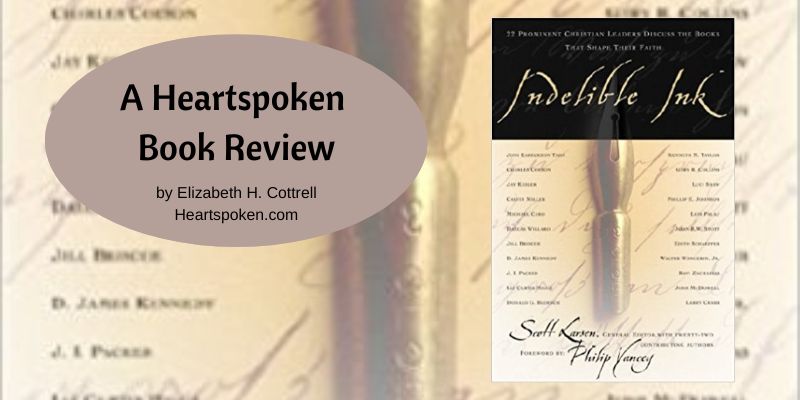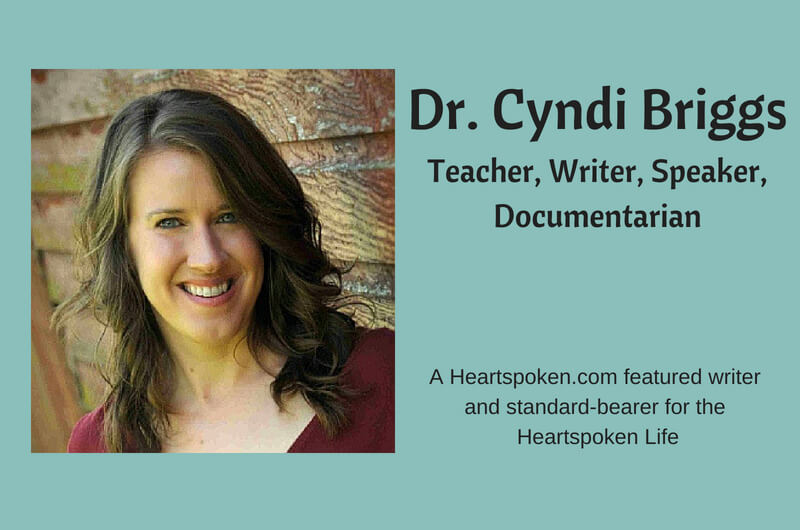Update 2023
I’ve recently enjoyed going back to look at book reviews I wrote in the past to see if I might want to re-read any of the books. I can’t live long enough to read all the books I’d like to read, so I rarely re-read any, but I’ve enjoyed being reminded of the insights and takeaways from my reading at different times in my life. This book, I remember, was a surprisingly rich read, and I can recommend it wholeheartedly.
Book Review:
Indelible Ink: 22 Prominent Christian Leaders Discuss Books That Shape Their Faith edited by Scott Larsen with a foreword by Philip Yancey
I thoroughly enjoyed this book…and for different reasons than I expected. I ordered it because the foreword is by one of my favorite Christian authors, Philip Yancey, and because the title and premise (ask several well-known Christian writers what books have most influenced them other than the Bible) were appealing. I expected to mostly get some ideas for a few more spiritual books to read.
When I actually opened and perused the book, I was concerned when I realized how many of the authors had the reputation of being more of the fundamentalist persuasion than I am. I was afraid that their recommendations might not be as meaningful or helpful to me.
Two big surprises:
- With a couple of exceptions, their writing about reading (all kinds of reading) was delightful and compelling to someone like me who is an avid reader and who enjoys reading about others who also appreciate the value of a rich reading life. Some of the authors wrote so beautifully and eloquently about the books they were sharing that I felt I had extracted enough value out of their descriptions that I didn’t need to go and read the book they were discussing.
- Many of the books that impacted these authors were not what I would call Christian or even primarily spiritual. These included works of Shakespeare
, Dostoyevsky
, Shusaku Endo
, Alexandre Dumas
, and Annie Dillard
. Calvin Miller’s essay was particularly delightful in expressing his joy of reading: “Why am I so narcolibric (a word of my contriving, meaning ‘print addicted’)? Because every book I see says to me ‘come hither and I will make you wise.'”
I knew exactly what he meant, don’t you?
Walter Wangerin, Jr. also spoke about the importance of choosing books wisely: “Books open our eyes to the complex truths that simple, mindless stories simply have no name for. So why not pick the best?… That’s the influence of great books; they teach us how to see the world that is.” “A book must be the axe for the frozen sea inside us.” (Franz Kafka)
Not surprisingly, the works of C.S. Lewis figured prominently in several selections.
It’s very important to remember in a book like this—as was noted by Michael Card in his essay—”For almost as important as the content of the book itself is the timing of the moment when it first comes into your life.” I have certainly found that to be true in my own life.
Some of my notes and highlights
- The editor commented on the cumulative importance of the books we choose to read. Any one book might have a negligible influence, but taken together, they can shape us. “One drop of red paint in a bucket of white will make no perceptible difference; one drop every day for fifty years will result in a bucket of red paint…books shape us, dynamically molding our minds and souls.”
- One of the authors inspired by Calvin’s teaching found it helpful to remember the verse from Psalm 119:105: “Thy word is a lamp unto my feet and a light unto my path.” He found this image (as of a flashlight in the dark) helpful in trusting God to provide light for the very next step even if there is darkness beyond. As we step forward into God’s light, there will be light for the next step too.
- Donald G. Bloesch says, “Kierkegaard and Nygren
have all expanded my spiritual and intellectual horizons and have helped me recognize the way to reach outsiders for the faith is not by apologetic argument, but by sharing the gospel and demonstrating its truth in daily life.”
- Donald G. Bloesch again: “A faith that will renew the church is one that respects mystery even while trying to find meaning within mystery.”
- Gary R. Collins reflected on the book Hope for the Flowers
by Trina Paulus about a caterpillar named Stripe who was told by a butterfly that he could fly too, but only if he would stop striving and become what he was meant to be. “Looking back,” said Collins, “I wonder if I have spent too much of my life climbing. To get to the top in this world, to have the greatest impact, we need to [stop climbing] and fly. And according to Stripe the caterpillar, ‘you must want to fly so much that you are willing to give up being a caterpillar.'”
- A lovely description of the Anglican Church by Luci N. Shaw : “…where mystery is sanctioned and celebrated, where the sacraments, and especially the Eucharist—that pointer to the unseen real—brought me into Christ’s real presence.” She says later, “…and what is faith, if not belief that persists in the face of paradox and mystery?”
- John R. W. Stott, writing about books by Bishop J. C. Ryle
, said, “Bishop Ryle clarified for me the differences between justification and sanctification. One of them is that, although we are justified by faith alone WITHOUT works, we are sanctified by faith AND works. And he showed that whereas justification is a crisis, sanctification is a process, in which there may be many deeper experiences.”
- Walter Wangerin, Jr.: “When goodness confronts evil and does not pay evil back with evil, suddenly evil is made so apparent that even the evil one must recognize it.”
- Josh McDowell on what he learned from Changes That Heal
by Dr. Henry Cloud: “It is biblical and honoring to God to set limits on your life—to set boundaries on what you do, how much you help, what you get involved in—I began to give myself permission to say no and still be a loving person.”
- Larry Crab: “As a psychologist, I have felt for years that most of us in American Christianity use God to solve our problems. In contrast, John of the Cross
used his problems to find God.”
There were a few pages in this book where I wrote question marks or “No, no, no!” in the margins, but overall, it was a treasure of thought-provoking essays from interesting writers, and I’m sure many of the recommended books are treasures too.
What books have made the most difference in YOUR life? Please comment below. You can buy Indelible Ink today from Amazon by clicking on the book cover image below. Since I am an Amazon affiliate, your purchase through of books my links will help support this blog.
If you prefer to support independent bookstores instead of Amazon, you can buy this book from my Heartspoken Bookshop by clicking the button below:




 Book Review: In the Likeness of God by Philip Yancey and Paul Brand
Book Review: In the Likeness of God by Philip Yancey and Paul Brand